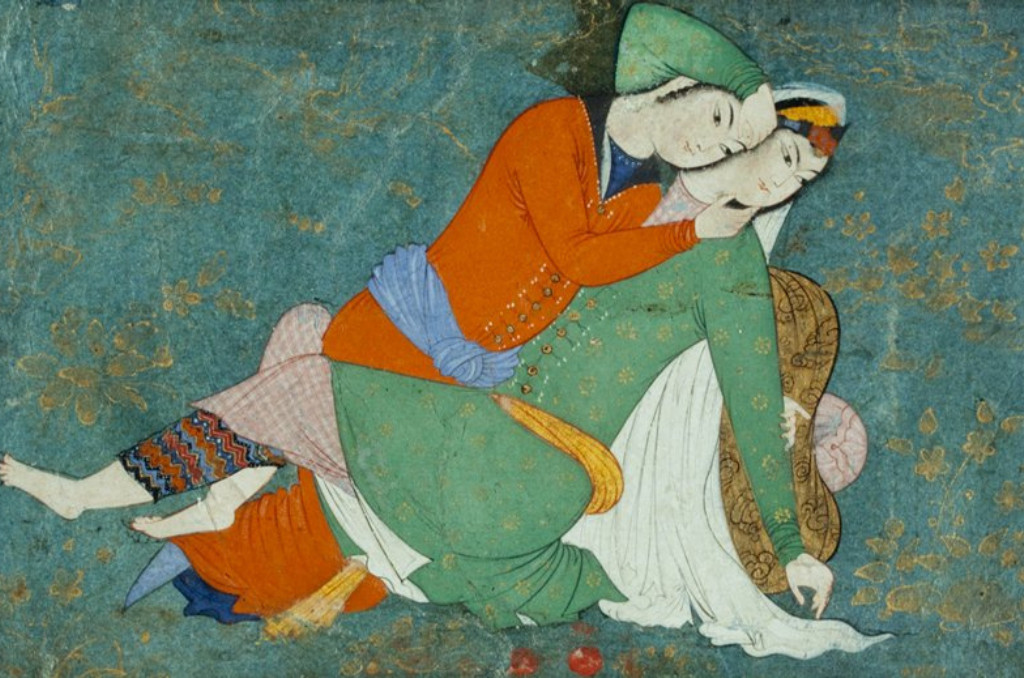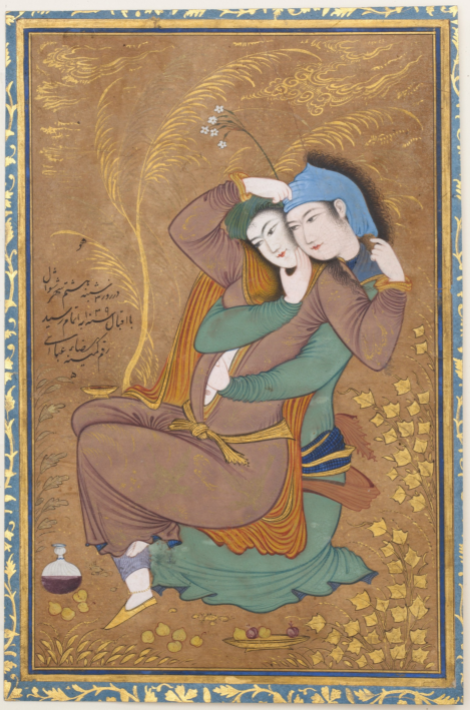
What is pleasure?
Does pleasure mean something different to everybody?
What makes a woman attractive?
What makes a man attractive?
Why don’t we Muslims talk about sex, attraction, and pleasure?
Why are we Muslims, in the West, surprised when we see Muslim women demand sexual pleasure?
While pondering these questions, I started researching the expression “sex and pleasure among Muslims”. To my delight, I found the book The Muslimah Sex Manual: A Halal Guide to Mind Blowing Sex by Umm Muladhat on Amazon. I got the book in less than two days, thanks to my Amazon Prime membership. I carefully opened the thin bag to find a thinner book. Glancing at the title, I tried to the pleasure of reading the words “Muslimah”, and “Mindblowing Sex” in the same sentence. I browsed the book. “Enjoy sex for itself,” I read. “ … worrying about orgasming during sex diminishes your pleasure. You’ll be focusing on what’s not happening rather than enjoying what is. Relax, enjoy the pleasure.”
I was utterly shocked to see a Muslim woman write about sex and sexual scenes with such openness and forwardness. I live in the United States, where sex and porn are a few touches away. Sex scenes, porn sites, and sexual images are readily available at a fingertip.
When I first posted a short story, merely a synopsis of the book, a few years ago, I received more than 10,800 hits within 48 hours of making the post live. For Goltune, the best click rate for the stories we post is usually between 560 to 780. Tthat happens within the first 5 days when stories get released. But, a 1400 % increase in the site’s viewership for a single story about ‘sex’ was both surprising and confirming. This was then, a few years ago.
Porn sites get more visits than Netflix, Amazon, & Twitter, combined!
New research shows that people do not search for “sex” anymore. “Porn” is the new keyword. I think we’ve passed through the age of sex and intimacy, and now we are swimming in the concept of hard-core pleasure. Porn sites get more visits than Netflix, Amazon, and Twitter, combined each month, according to the new porn website Paint Bottle. So, I started questioning myself about my surprise, back then, and now that I write this piece.
My surprise was warranted. Although the Muslim world is widely dispersed and incredibly diverse, Muslim cultural critics and scholars, mostly men, are reticent about sex talk, especially in the public discourse. And, when sex does come up, it is often within the context of modesty, gender segregation, marriage counseling, or private talks on pure sexual mechanics wrapped around heteronormative values.
Nedjma, the North African Muslim author of the erotic novel The Almond: The Sexual Awakening of a Muslim Women (2004), used the pseudonym to minimize the impact of blowback from her book. Nedjma openly criticized modern Muslims’ takes on sexual discourse as ‘disfigured.’ In the New York Times Book Review, the editor explains that “Nedjama appears to have been motivated by more than a desire to titillate ….she wanted both to celebrate the body as an expression of life and to strike a blow against the centuries-old repression of Muslim women.
But, is Islam, and are Muslims in general, sexually repressed?
-

Painting by Iranian Riza‑yi ‘Abbasi | The Lovers | The Metropolitan Museum of Arts | During Shah Safavi (1629-46)
Starting in the 9th Century, Muslim intellectuals such as the Baghdadi scholar Al-Jahiz, and the physician Al-Razi, known for his study of smallpox and measles, developed a stream of studies of sexology literature called ‘ilm al-bah,’ Arabic for “Knowledge of Coitus”. In the book, the scholars offer rundowns of penetrative and non-penetrative sex positions and acts, aphrodisiacs, and proposed penis enlargement and vaginal tightening products, as well as comprehensive guides to coital etiquette.
The Perfumed Garden of Sensual Delight is a book of sexual eroticism that was compiled by a Muslim scholar Al-Nefzawi in the 15th century under the ruler of Tunis. Even within key Quranic verses, Prophet Mohammad believed women have a right to sexual pleasure, and their husbands should fulfill that right if they can. If a woman isn’t getting sexual satisfaction at least once every four months when she has a partner and wants to have sex, interpreters say, she has grounds to divorce him and seek a more sexually giving and compatible partner.
I find it fascinating that people like Umm Muldahat and Nedjma have to write their books on sexual intimacy and eroticism under a pseudonym, while early Islamic scholars could debate sex positions and sex products to enhance sexual pleasure. Or, Muslim women in the early days of Islam could divorce a bad lover, and yet, I get ‘utterly’ surprised to see Muslims talk about sex, even today, in the United States of America.
Happy Valentine’s Day!
Sara Jamshidi
2/12/2023
The resource I used for this story is from this write up.
Please Pledge to Our Independent Peace Journalism.
Goltune is editorially independent. We set our agenda. No one edits our editors. No one steers our opinion. This is important as it enables us to stay true to our values.
Every contribution we receive from readers like you, big or small, goes directly into funding our journalism. Please support Goltune, large or small. Thank you.
Send your contributions to our PayPal account: [email protected]
Or, contact us and let us know what we can do to deserve your support.







